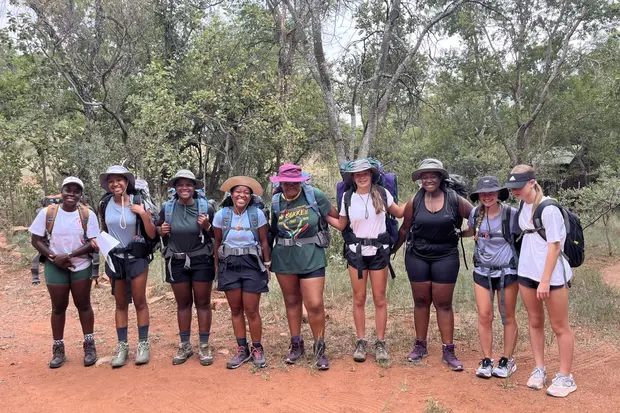Message from the Chaplain: 31 January 2023

In his writing, St Paul refers to sports activity to highlight the spirit of courage demanded by the Christian life. In 1 Corinthians 9:24–26, the metaphor is extended from running to other games, such as boxing, to make the point that winning a prize requires discipline, self-control, and co-ordinated activity.
24 Surely you know that many runners take part in a race, but only one of them wins the prize. Run, then, in such a way as to win the prize. 25 Every athlete in training submits to strict discipline, in order to be crowned with a wreath that will not last; but we do it for one that will last forever. 26 That is why I run straight for the finish line; that is why I am like a boxer who does not waste his punches. 27 I harden my body with blows and bring it under complete control, to keep myself from being disqualified after having called others to the contest (1 Corinthians 9:24-26, GNT).
For the people of Corinth, this message would have resonated. They were part of the Greek world and familiar with Greek literature and philosophy. In the Greek education system, sports were of educative and formative value. They (the ancient Greeks) asked one simple question: how will this type of training help me develop the virtues to live a good life? The training was then structured in such a way that it would help a person build excellence of character, endurance, courage, and strength of will.
Paul transformed the Greek view of learning by rooting the formation of human character in the image of Jesus. Jesus, who in his sacred humanity so often touched others through his own body with a gaze, an embrace, or the healing touch of his hands, is the reason why our dancing, our playing, and our training have value. In placing our hand on the back of a friend getting ready to play a sport and in speaking a word of encouragement to her, we are touching a mystery that finds its ultimate meaning in the mystery of Jesus Christ himself, true God and true man (Burgis 2015), thus, showing how all human actions can be redemptive.
REVD RAKGADI KHOBO
CHAPLAIN
Related News

From the Senior School head's desk: 31 January 2025

Cellphone-free academic time

Cultural clubs
